- Home
- Joy Fielding
Missing Pieces Page 2
Missing Pieces Read online
Page 2
I think I know what’s going on across the street. It’s happened before. Several large boys bullying a couple of smaller boys to come over, to knock on my door. The big boys are laughing, taunting the smaller ones, pushing them and calling them cowards, daring them to cross the street. Just ring the bell and ask her, I can hear them say, although no sound reaches my ears beyond their cruel laughter. Go ring her bell, then we’ll leave you alone. The two younger boys—I think I recognize one of them as six-year-old Ian McMullen, who lives at the end of the street—straighten their shoulders and stare at the house. Another push and they’re off the sidewalk and on the road, creeping up the front walk, their small fingers already stretching toward the buzzer.
And then suddenly they’re gone, running madly down the street, as if being chased, although the older boys have turned and run off in the opposite direction. Maybe they saw me watching them; maybe someone is calling them; maybe good sense got the better of them. Who knows? Whatever it was that made them turn and flee, I’m grateful, although I’m already half out of my chair.
The first time it happened was just after the story hit the front pages. Most people were very respectful, but you always get a few who aren’t satisfied with what they read, who want to know more, who feel they’re entitled. The police did a good job of keeping most of them at bay, but occasionally young boys such as these made their way to my front door.
“What can I do for you?” I hear myself say, recalling their presence, feeling it still.
“Is this where it happened?” they ask, giggling nervously.
“Where what happened?”
“You know.” Pause, anxious glances, trying to peer around my stubborn bulk. “Can we see the blood?”
It’s around this time that I shut the door on their curious faces, although I admit the perverse temptation to usher them graciously inside, direct them toward the back of the house, like a tour guide, my voice a melodic whisper, to point out the area on the family-room floor that was once covered in blood, and even now shows faint traces of blush, despite several professional cleanings. Probably I’ll have to have those tiles replaced. It won’t be easy. The company that manufactured them went bankrupt several years ago.
So, how did all this happen? When did my once steady and comfortable life begin careening out of control, like a car without brakes on a high mountain road, gaining speed and momentum until it crashes into the abyss and bursts into flames? At what precise moment did Humpty-Dumpty fall off the wall and shatter into thousands of tiny pieces, impossible to repair or replace?
Of course, no such moment exists. When one part of your life is coming apart at the seams, the rest of your life doesn’t just sit back and patiently wait its turn to continue. It doesn’t give you time to cope, or space to adjust and refocus. It just keeps piling one confusing event on top of the next, like a traffic cop rushing to make his quota of tickets.
Am I being overly dramatic? Maybe. Although I think I’m entitled. I, who have always been the steady one, the practical one, the one with more common sense than imagination, or so Jo Lynn once stated, am entitled to my few moments of melodrama.
Do I start at the very beginning, announce myself like a label stuck to a lapel: Hello, my name is Kate Sinclair? Do I say that I was born forty-seven years ago in Pittsburgh on an uncharacteristically warm day in April, that I’m five feet six and a half inches tall and one hundred and twenty-five pounds, that my hair is light brown and my eyes a shade darker, that I have small breasts and good legs and a slightly lopsided smile? That Larry affectionately calls me funny face, that Robert said I was beautiful?
It would be much easier to start at the end, to recite facts already known, give name to the dead, wipe away the blood once and for all, instead of trying to search for motivations, for explanations, for answers that might never be found.
But the police don’t want that. They already know the basic facts. They’ve seen the end results. What they want are details, and I’ve agreed, as best I can, to provide them. I could start with Amy Lokash’s disappearance, or the first time her mother came to my office. I could begin with my mother’s fears she was being followed, or with the day Sara’s teacher called to voice her growing concerns about my daughter’s behavior. I could talk about that first phone call from Robert, or Larry’s sudden trip to South Carolina. But I guess if I have to choose one moment over all the others, it would have to be that Saturday morning last October when Jo Lynn and I were sitting at the kitchen table, relaxing and enjoying our third cup of coffee, and my sister put down the morning paper and calmly announced that she was going to marry a man who was on trial for the murder of thirteen women.
Yes, I think I’ll start there.
Chapter 2
I remember it was sunny, one of those perfect Florida days when the sky is so blue it seems artificial, the temperature balancing on the comfortable side of eighty, with only a warm whisper of a breeze. I swallowed the balance of coffee in my cup, inhaling it as lovingly as a chain-smoker with her last cigarette, and stared out the back window at the large coconut palm that curved from behind the pool toward the terra-cotta tile roof of the house. It was the kind of picture you see on postcards that trill, “Having a wonderful time, wish you were here.” The sky, the grass, even the bark of the trees, were so vivid they seemed to vibrate. Diamondlike sparkles of air reflected from their surfaces. “What a day,” I said out loud.
“Hmm,” Jo Lynn grunted from somewhere behind the morning paper.
“Look at it,” I persisted, not sure why I was bothering. Was I looking for confirmation or conversation? Did I need either? “Look at how blue that sky is.”
Jo Lynn’s eyes flashed briefly over the top corner of the local news section of the Palm Beach Post. “Wouldn’t you just love a sweater in that shade?” she asked, her voice a lazy Southern drawl.
Somehow this wasn’t quite the response I’d been hoping for, although it was typical Jo Lynn, for whom nature was merely backdrop. I lapsed back into silence, debated whether to have another cup of coffee, decided against it. Three cups was more than enough, although I do love my morning coffee—my only real vice, I used to say.
I thought of Larry, out on the golf course since before 8 A.M. with prospective clients. Larry was relatively new to golf. He’d played a bit in college, was actually quite good at it, he confided, but gave it up for lack of time and money. Now that he had substantially more of both, and clients and business acquaintances were always inviting him out for a round, he’d taken it up again, although he wasn’t finding it quite as relaxing as he remembered. The night before, he’d spent almost an hour practicing in front of the full-length bathroom mirror, trying to recapture the effortless swing of his youth. “Almost there,” he kept repeating, as I grew tired of waiting for him to come to bed, and allowed myself to drift off to sleep, vague stirrings of frustration teasing at my groin.
He’d already left by the time I woke up. I got out of bed, threw on a short pink cotton robe, ambled into the kitchen, made a large pot of coffee, and sat down with the newspaper that Larry had been thoughtful enough to bring inside before heading out. The girls were still asleep. Michelle had been out with her girlfriends till after midnight. I didn’t even hear Sara come home.
I was reading the movie reviews and enjoying my second cup of coffee when Jo Lynn showed up. She was in a lousy mood, she announced in lieu of hello, partly because she hadn’t slept very well, but mostly because she’d been stood up the night before. Apparently her date, a former football player turned sporting goods salesman, who she said looked like a weathered Brad Pitt, had begged off at the last minute, claiming a sore throat and achy limbs. So she’d gone to a bar and who should show up, looking healthy as a horse? Well, you know the rest, she told me, pouring herself a cup of coffee, settling in.
So there she was, in white shorts and revealing halter top, looking gorgeous as usual, despite her sleepless night, her shoulder-length blond curls gloriously askew—the freshl
y fucked look, she called it, although she hadn’t been, she groused. That makes two of us, I almost confided, but didn’t. I could never bring myself to discuss my sex life with Jo Lynn, partly because I didn’t trust her to be discreet, mostly because there was nothing much to tell. I’d been in a monogamous relationship for almost a quarter of a century. To Jo Lynn, monogamy equaled monotony. I’d given up trying to change her mind. Lately, my words sounded hollow, even to me.
Jo Lynn, on the other hand, was always more than willing, eager even, to share the secrets of her love life with me. Details of her escapades flowed from her lips as briskly as water from a mountain stream. I tried to tell her that her love life was nobody’s business but her own, but this was a concept she clearly didn’t understand. I tried to remind her that discretion was the better part of valor; she looked at me as if I were crazy. I tried to warn her against disease; she scowled and looked away. I told her I really wasn’t interested; she laughed loud and long. “Of course you’re interested,” she’d say, and of course she was right. “Just don’t talk about it in front of the girls,” I’d plead, to no avail. Jo Lynn loved an audience. She relished the effect she had on my daughters, who openly worshipped her, especially Sara. Sometimes they’d gang up on me, laugh at my so-called conservative ways, talk about dragging me onto one of those dreadful daytime talk shows they sometimes watched. “Girl, you need a makeover!” Jo Lynn would shout in the hyperextended voice of Rolonda or Ricki Lake, while Sara doubled over with laughter.
“He’s cute,” Jo Lynn was muttering now, her face buried so deep behind the morning paper that I wasn’t sure I’d heard her say anything at all.
“Did you say something?”
“He sure is cute,” she repeated, more clearly this time. “Just look at that face.” She spread the paper across the round glass top of the kitchen table. “I’m gonna marry that man,” she said.
I stared down at the front page of the local news section. Three men stared back: the President of the United States, in Florida to confer with local politicians; a Catholic priest, lending his support to a projected gay and lesbian rights march; and Colin Friendly, the ironically named accused killer of thirteen women, sitting in a courtroom in West Palm Beach. I was afraid to ask which of the three she meant.
“I’m serious,” she said, the long orange nail of her index finger tapping at the photograph of the accused murderer. “Just look at that face. He looks a little like Brad Pitt, don’t you think?”
“He looks like Ted Bundy,” I corrected, although, in truth, I couldn’t make out what he looked like. I’d taken off my reading glasses and everything about the newspaper was a soft blur.
“Put on your glasses,” she instructed, reading my mind, pushing the wire-rimmed half-glasses toward my face. The grainy black and white dots of the photograph immediately snapped into place, forming a clear, cohesive whole. “What do you see?”
“I see a cold-blooded killer,” I pronounced, about to remove the glasses when her hand stopped me.
“Where does it say he killed anybody?”
“Jo Lynn, do you actually read the paper or do you just look at the pictures?”
“I read the article, smarty-pants,” she said, and instantly we were both ten years old, “and it doesn’t say one word about him being a murderer.”
“Jo Lynn, he killed at least thirteen women …”
“He’s accused of killing them, which doesn’t mean he did it. I mean, correct me if I’m wrong, but isn’t that why there’s a trial?”
I opened my mouth to protest, thought better of it, said nothing.
“Whatever happened to ‘innocent until proven guilty’?” she continued, as I’d known she would. Benign silence had never worked with Jo Lynn.
“You think he’s innocent,” I stated, a technique I often used with clients. Instead of arguing, instead of trying to change their minds, instead of providing them with answers that might or might not be correct, I merely repeated their own words back at them, sometimes reframing those words in a more positive light, hopefully giving them time to discover the answers for themselves, sometimes just to let them know they’d been heard.
“I think there’s a good chance he might be. I mean, just look at that face. He’s beautiful.”
Reluctantly, I studied the photograph. Colin Friendly sat between his lawyers, two faceless men conferring with each other behind his back, as the accused serial killer hunched forward, staring blankly toward the empty witness stand. What I saw was a man in his early thirties, his dark wavy hair combed neatly away from his finely chiseled features, a face that, under other circumstances, I might have regarded as handsome. I knew, from other pictures I’d seen, that he was over six feet tall and slim, almost wiry. His eyes were said to be blue, although never just blue, but always piercing blue or intensely blue, although today’s photograph revealed nothing of the sort. But maybe it was hard for me to look at him objectively, even then.
“Don’t you think he’s gorgeous?”
I shook my head.
“You can’t be serious. He looks just like Brad Pitt, only his hair is darker, and his nose is longer and thinner.”
I stared at the thirty-seven-year-old woman sitting across from me. She’d gone from sounding like a ten-year-old to sounding like a love-struck teen. Would she ever grow up? I wondered. Did any of us? Or did we just grow old?
“Okay, so maybe he doesn’t look that much like Brad Pitt, but you’ve got to admit he’s good-looking. Charismatic. Yeah, that’s what he is—charismatic. At least, you have to admit that much.”
“It’s very hard for me to think of anyone who tortured and murdered thirteen women and girls as being either gorgeous or charismatic. I’m sorry, I just can’t do it.” I thought of Donna Lokash, a client of mine, whose daughter, Amy, had disappeared almost a year ago, a possible victim of Colin Friendly’s rage, although her body had yet to be found.
“You have to separate the two issues,” Jo Lynn was saying, and I almost laughed. I was the one, after all, who was always talking about separating issues. “The fact that he’s good-looking has nothing to do with whether or not he killed anybody.”
“It doesn’t?”
“No. One thing has nothing to do with the other.”
I shrugged. “What do you see when you look at him?” I asked, genuinely curious. “Aside from Brad Pitt.”
“I see a little boy who’s been hurt.” Jo Lynn’s voice was solemn, genuine.
“You see a boy who’s been hurt,” I parroted, recalling Jo Lynn as a child, gently rocking a stray kitten back and forth across her bare tummy. It had given her ringworm. “Where? Where do you see that?”
The bright orange nail drew a small circle around Colin Friendly’s mouth. “He has a sad smile.”
I studied the photograph more closely, surprised to discover she was right. “Don’t you think it’s odd,” I asked, “that, under the circumstances, he’s smiling at all?”
“It’s just boyish bravado,” she said, as if she’d known Colin Friendly all her life. “I find it endearing.”
I stood up, shuffled over to the kitchen counter, poured myself another cup of coffee. Clearly, I was going to need it. “Can we talk about something else?”
Jo Lynn swiveled around in her chair, held out her cup for me to fill. Her long tanned legs stretched toward me, the bright orange polish on her toenails peeking out from between the crossing leather bands of her white sandals. “You don’t think I’m serious, do you?”
“Jo Lynn, let’s not …”
“Let’s not what? Talk about something just because it’s important to me?”
I stared into my coffee cup, wishing I were back in bed. “This is important to you?” I asked.
Jo Lynn sat up straight, drew her legs back beneath her chair, pushed her lips into a Bardot-like pout that men usually found appealing, but which had always annoyed the hell out of me. “Yes, it is.”
“So where do you want me to send the wedding pr
esent?” I asked, straining for levity.
Jo Lynn was having none of it. “Sure, make a joke. I’m just a big joke to you.”
I took a long, slow sip of my coffee, the only thing I could think to do that wouldn’t get me into more trouble. “Look, Jo Lynn, what is it you want me to say?”
“I want you to stop being so damned dismissive.”
“I’m sorry, I didn’t realize I was being dismissive.”
“That’s the problem. You never do.”
My shortcomings weren’t something I particularly wanted to get into at this hour of the morning. “Look, can’t we just agree to disagree? It’s a beautiful day. I really don’t want to waste it arguing about some guy you’ve never even met.”
“I’m going to change that.”
“What?”
“I’m going to meet him.”
“What?”
“I’m going to meet him,” she repeated stubbornly. “I’m going to go down to that courthouse next week and meet him.”
My patience was all but exhausted. This was worse than dealing with Sara. “You’re going to go to the courthouse …”
“That’s what I just said. I’m going to the courthouse. On Monday.”
“And what do you think you’re going to accomplish by going to the courthouse?” I asked, ignoring the little therapist’s voice in the back of my head urging me to be quiet, to let Jo Lynn sputter on until she simply ran out of steam. “They’re not going to let you talk to him.”

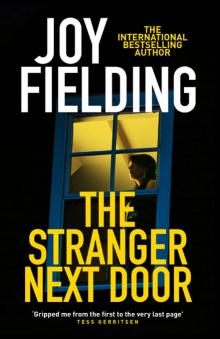 The Stranger Next Door
The Stranger Next Door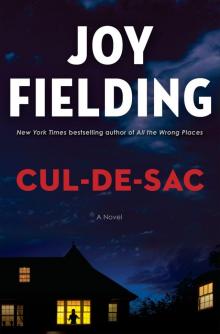 Cul-de-sac
Cul-de-sac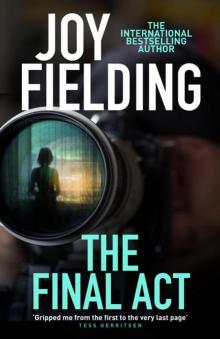 The Final Act
The Final Act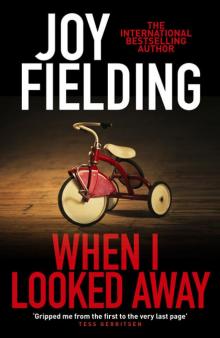 When I Looked Away
When I Looked Away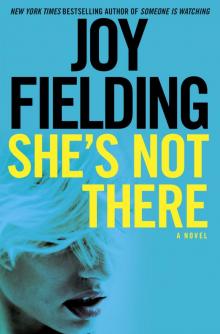 She's Not There
She's Not There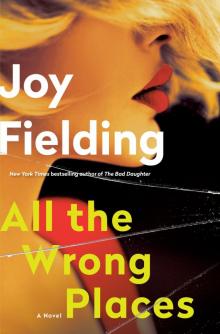 All the Wrong Places
All the Wrong Places Now You See Her
Now You See Her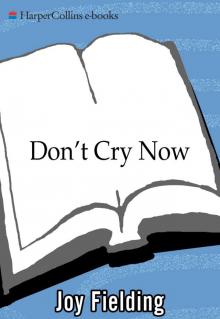 Don't Cry Now
Don't Cry Now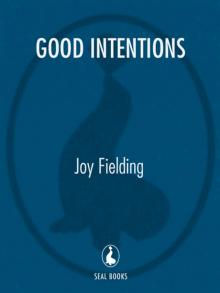 Good Intentions
Good Intentions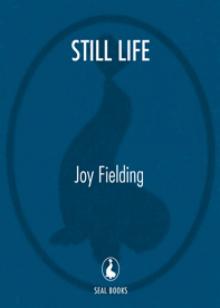 Still Life
Still Life Lost
Lost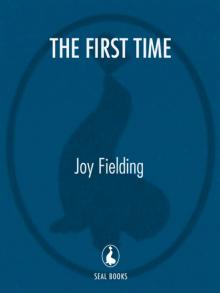 The First Time
The First Time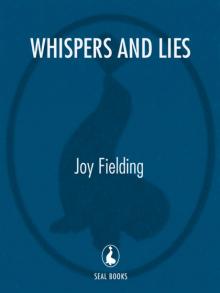 Whispers and Lies
Whispers and Lies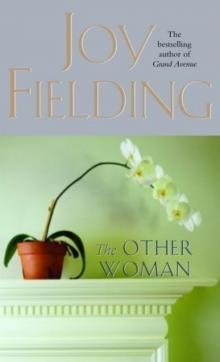 The Other Woman
The Other Woman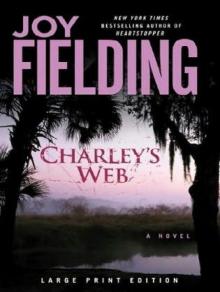 Charley's Web
Charley's Web Mad River Road
Mad River Road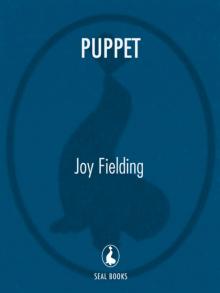 Puppet
Puppet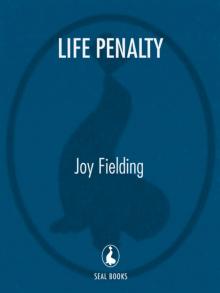 Life Penalty
Life Penalty The Wild Zone
The Wild Zone Home Invasion
Home Invasion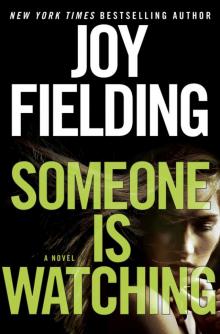 Someone Is Watching
Someone Is Watching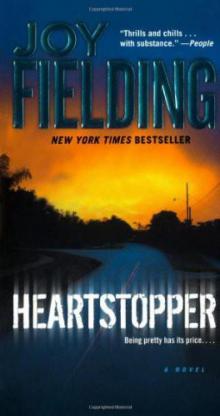 Heartstopper
Heartstopper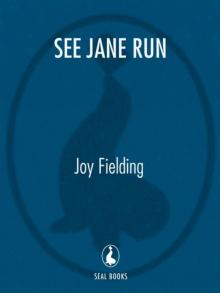 See Jane Run
See Jane Run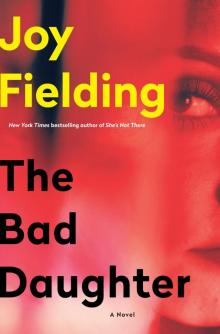 The Bad Daughter
The Bad Daughter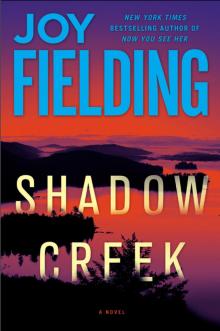 Shadow Creek
Shadow Creek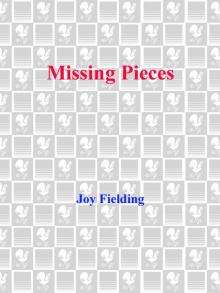 Missing Pieces
Missing Pieces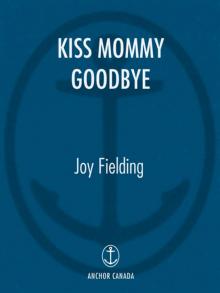 Kiss Mommy Goodbye
Kiss Mommy Goodbye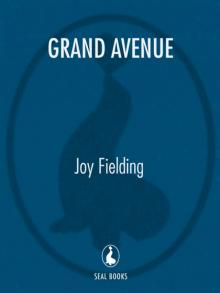 Grand Avenue
Grand Avenue